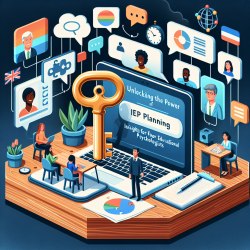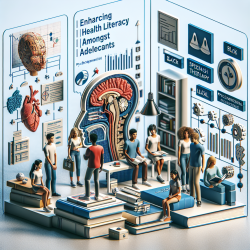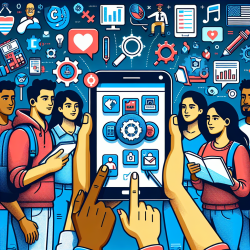Understanding the IEP Process: A Path to Success
For many parents, navigating the Individualized Education Program (IEP) process can feel overwhelming and complex. Educational psychologists play a pivotal role in transforming this journey into a collaborative and empowering experience. The IEP is a crucial tool that outlines tailored educational plans to support children with special needs, ensuring they receive the appropriate resources and interventions for their unique learning paths.
The Role of Educational Psychologists in IEP Meetings
Educational psychologists are instrumental in the IEP planning and meeting process. Their expertise helps demystify the process for parents and ensures that every child's needs are thoroughly understood and addressed. Here’s how they can make a difference:
- Comprehensive Assessments: Educational psychologists conduct detailed evaluations to identify a child's strengths and areas for improvement, providing a solid foundation for IEP goals.
- Data-Driven Decisions: By utilizing evidence-based practices, psychologists ensure that interventions are effective and progress is measurable.
- Collaboration and Communication: They act as a bridge between educators, therapists, and families, fostering a team approach to support the child’s development.
Embracing Technology in IEP Planning
In recent years, the integration of telehealth and speech therapy telepractice has revolutionized the way services are delivered, especially in the realm of special education. These technologies offer flexibility and accessibility, allowing for consistent and effective intervention without the constraints of geographical barriers.
Telepractice enables educational psychologists to participate in IEP meetings virtually, ensuring that their insights and expertise are accessible regardless of location. This is particularly beneficial for schools in remote areas where specialized services may be limited.
Taking the Next Step
For parents feeling lost in the IEP process, it's important to know that help is available. Educational psychologists are there to guide and support you, ensuring that your child receives the best possible educational experience. If you haven’t yet explored the benefits of telehealth and online therapy services like those offered by TinyEYE, now might be the perfect time to consider them as part of your child's IEP plan.
Remember, you are not alone in this journey. Reach out to your child’s educational team and ask about incorporating telepractice into your child’s IEP. Together, we can create a supportive and effective learning environment that meets your child's unique needs.










